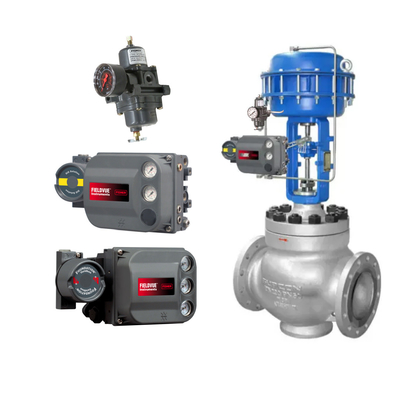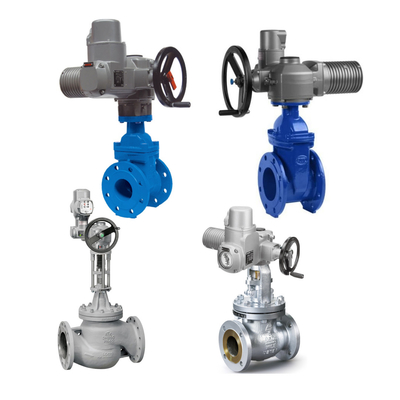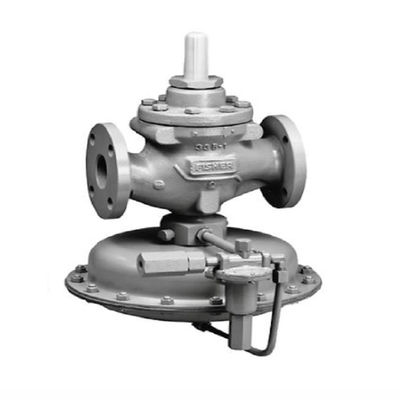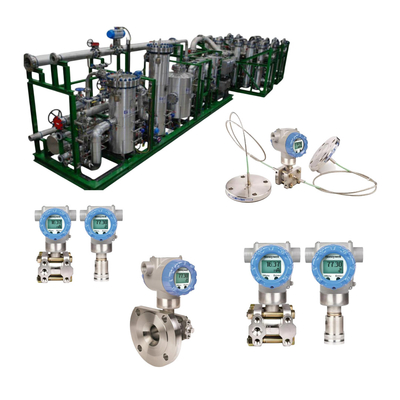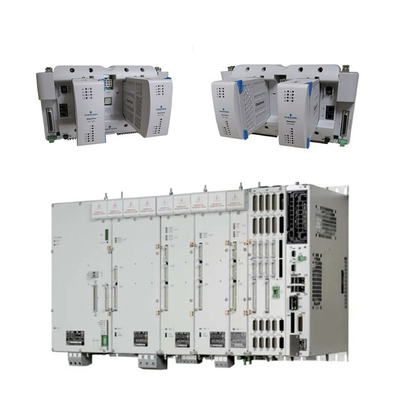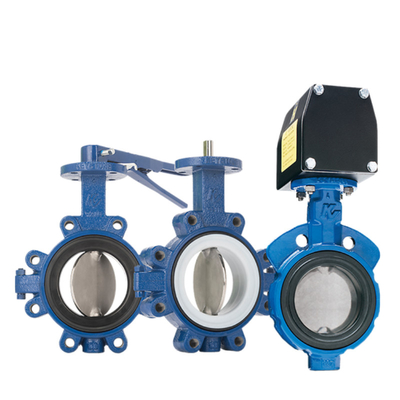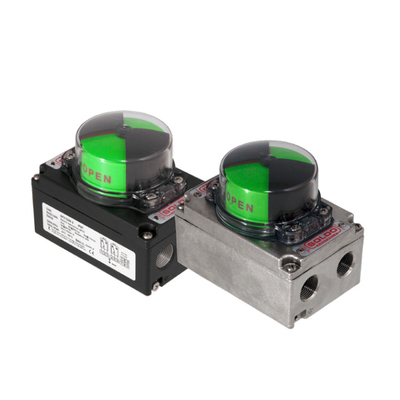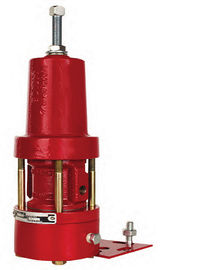What are the functions of pneumatic valve positioners?
Introduction: Understanding Pneumatic Valve Positioners and Their Importance in Industrial Automation
In the realm of industrial automation, precise control of fluid flow is critical for maintaining efficiency, safety, and product quality. A pneumatic valve positioner plays a pivotal role in achieving this precision. It is a device that ensures a valve reaches the exact position required by the control system, thereby regulating the flow of liquids or gases in processes such as manufacturing, refining, and power generation. By interpreting control signals and adjusting the valve actuator accordingly, pneumatic valve positioners enhance the accuracy and responsiveness of valve control systems. Their importance cannot be overstated, as they contribute to optimized resource usage, reduced downtime, and consistent output quality in various industries.

Fisher DVC6200 Valve Positioner
Main Functions of Pneumatic Valve Positioners
Pneumatic valve positioners serve several critical functions in valve automation, each contributing to the overall efficiency and reliability of industrial processes. Below are the primary functions:
1. Precise Control of Valve Position
The core function of a pneumatic valve positioner is to accurately control the position of the valve. It receives a control signal (typically pneumatic) from the process controller and adjusts the valve actuator to achieve the desired position. This ensures that the flow rate matches the exact requirements of the process, preventing issues such as over- or under-flow.
2. Signal Amplification
In many industrial applications, the control signal alone may not be sufficient to move large or heavy-duty valves. Pneumatic valve positioners amplify the control signal, providing the necessary force to actuate the valve smoothly and efficiently. This is particularly important in systems where large actuators are used, such as in oil and gas pipelines.
3. Actuator Feedback for Closed-Loop Control
Pneumatic valve positioners provide feedback on the actual position of the valve actuator. This feedback is essential for closed-loop control, where the positioner continuously compares the desired position (setpoint) with the actual position and makes adjustments as needed. This ensures high accuracy and compensates for factors like friction, pressure variations, or mechanical wear.
4. Linearization of Valve Response
Some valves, especially those with non-linear characteristics, do not provide a proportional flow rate relative to the valve position. Pneumatic valve positioners can linearize the valve’s response, making the flow rate directly proportional to the control signal. This improves the predictability and stability of the process, enhancing overall control.
Practical Examples of Where Pneumatic Valve Positioners Are Used
Pneumatic valve positioners are integral to a wide range of industries that rely on precise valve automation. Here are some key examples:
- Oil and Gas: In pipelines and refineries, pneumatic valve positioners control the flow of crude oil, natural gas, and refined products. Precise positioning is crucial for maintaining pressure, preventing leaks, and ensuring safe operations.
- Chemical Plants: These facilities use positioners to regulate the flow of chemicals during mixing, reaction, and separation processes. Accurate control is vital for product consistency and safety.
- Water Treatment: Pneumatic valve positioners manage the flow of water and treatment chemicals in purification systems, ensuring that water quality meets regulatory standards.
- Power Generation: In power plants, positioners control the flow of steam to turbines, optimizing energy production and preventing equipment damage.
Comparison Between Pneumatic and Electro-Pneumatic Positioners
While both pneumatic and electro-pneumatic positioners serve similar purposes, they differ in their operation and application:
- Pneumatic Positioners: These devices use air pressure for both the control signal and the actuating power. They are simple, reliable, and ideal for environments where electrical components may pose a risk, such as in explosive atmospheres. However, they may lack the advanced features of modern control systems.
- Electro-Pneumatic Positioners: These positioners use an electrical control signal (e.g., 4-20 mA) but still rely on pneumatic power to actuate the valve. They offer better integration with digital control systems, providing features like remote configuration, diagnostics, and enhanced precision. Electro-pneumatic positioners are increasingly popular due to their versatility and compatibility with modern automation technologies.
In summary, pneumatic positioners are favored in hazardous or simple applications, while electro-pneumatic positioners are preferred for their advanced capabilities and integration with digital systems.
Key Factors to Consider When Choosing a Pneumatic Valve Positioner
Selecting the right pneumatic valve positioner is crucial for optimal performance in valve control systems. Here are the key factors to consider:
- Compatibility with Valve and Actuator Type: Ensure the positioner is designed for the specific type of valve (e.g., linear or rotary) and actuator in use.
- Control Signal Type: Determine whether a fully pneumatic or electro-pneumatic positioner is required based on the control system’s signal output.
- Environmental Conditions: Consider factors such as temperature, humidity, and the presence of hazardous gases. Some positioners are built to withstand extreme conditions or comply with explosion-proof standards.
- Required Accuracy and Response Time: For processes that demand high precision or rapid adjustments, choose a positioner with superior accuracy and fast response times.
- Additional Features: Advanced positioners may offer diagnostics, remote configuration, or integration with fieldbus systems, which can enhance maintenance and control.

Masoneilan SVI2 Valve Positioner In Stock
Choosing a Reliable Supplier: Dr. Industry Group
When selecting a pneumatic valve positioner, partnering with a trusted valve positioner supplier is essential. Dr. Industry Group www.shgongboshi.com is a reputable Chinese supplier offering a wide range of pneumatic and electro-pneumatic valve positioners from leading brands such as Masoneilan, Fisher, and Samson. Known for their fast delivery and extensive export experience to regions like Southeast Asia and the Middle East, Dr. Industry Group is a reliable choice for industrial automation needs. Their expertise ensures that you receive high-quality products tailored to your specific requirements.
Conclusion: The Value of Pneumatic Valve Positioners in Process Automation
Pneumatic valve positioners are indispensable in modern industrial automation, providing precise control, enhanced efficiency, and reliability in valve control systems. By ensuring accurate valve positioning, amplifying control signals, and offering critical feedback, they help industries maintain optimal process conditions, reduce waste, and improve safety. Whether in oil and gas, chemical processing, or power generation, the role of pneumatic valve positioners is vital. When selecting a positioner, careful consideration of factors such as compatibility, environmental conditions, and supplier reliability will ensure long-term success in your automation projects.

 Your message must be between 20-3,000 characters!
Your message must be between 20-3,000 characters! Please check your E-mail!
Please check your E-mail!  Your message must be between 20-3,000 characters!
Your message must be between 20-3,000 characters! Please check your E-mail!
Please check your E-mail! 
